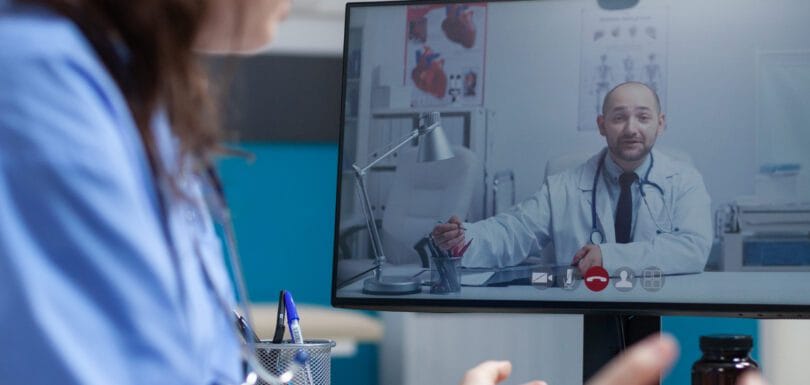Why a Spanish-Speaking Virtual Medical Assistant is Vital for Clinics
Why a Spanish-Speaking Virtual Medical Assistant is Essential in Todays Healthcare Landscape In the United States, over 40 million people speak Spanish at home, yet many healthcare facilities still don’t offer bilingual support. This creates major communication gaps that often lead to confusion, misdiagnosis, or even patients dropping out of care. A Spanish-Speaking Virtual Medical Assistant helps close this gap by acting as both a language and cultural bridge between patients and providers. Patients want to feel heard and understood, especially when it comes to their health. When they interact with someone who speaks their language whether it’s a Virtual Medical Receptionist answering their questions or a Virtual Patient Care Coordinator guiding their treatment they naturally feel more at ease and respected. That’s why having a Spanish-Speaking Virtual Medical Assistant for Spanish-speaking patients isn’t just a bonus anymore it’s a necessity. Healthcare practices that adopt Spanish-speaking support report fewer no-shows, better compliance with treatment plans, and higher patient satisfaction scores. These assistants handle day-to-day communication tasks, easing the burden on in-office staff while enhancing the overall patient experience. Although the demand for bilingual healthcare support is rising fast, few clinics are fully equipped to meet it. This underserved area presents a golden opportunity for practices to stand out while genuinely improving the quality of care they provide. How a Spanish-speaking Virtual Medical Assistant Improves Communication and Comfort Clear communication is at the heart of great healthcare. When patients can explain symptoms, ask questions, and receive instructions in their native language, outcomes improve. A Spanish-Speaking Virtual Medical Assistant ensures that nothing gets lost in translation literally or figuratively. These assistants help with tasks like appointment scheduling, insurance verification, follow-up calls, and medication reminders all delivered in Spanish. As a result, patients feel more confident and respected throughout their care journey. Additionally, patient communication in Spanish helps reduce anxiety and fear, especially during stressful moments like test results or urgent appointments. And when patients feel calm and informed, they’re more likely to follow instructions and show up for scheduled visits. With a remote medical assistant, clinics can provide bilingual support without adding overhead costs. These assistants are trained professionals, familiar with healthcare systems, who integrate seamlessly into your team even from miles away. Bilingual Medical Assistants Strengthen Workflow and Save Time Running a busy clinic means balancing patient care with nonstop administrative work. A bilingual medical assistant can lift a huge weight off your staff’s shoulders by managing time-consuming tasks while also keeping Spanish-speaking patients engaged. For example, a Spanish-Speaking Virtual Medical Assistant can handle form intakes, appointment reminders, lab follow-ups, and billing questions all in Spanish. This not only saves time but also boosts accuracy in documentation, as patients can communicate their symptoms more clearly. Furthermore, when patients are comfortable communicating, they’re more likely to respond to outreach efforts. That means fewer missed calls, reduced follow-up fatigue, a more efficient workflow for everyone involved. While some providers rely on in-person interpreters or apps, these methods often delay care and create awkward communication gaps. A dedicated assistant streamlines this experience and helps your clinic run like a well-oiled machine. How a Spanish Speaking Virtual Medical Assistant Boosts Patient Satisfaction At the end of the day, patient satisfaction is about feeling heard, respected, and supported. When a Spanish-Speaking Virtual Medical Assistant answers the phone or sends a reminder in Spanish, it instantly builds trust. That small moment signals, “We see you, and we care.” These assistants often become the go to contact for patients. Whether it’s clarifying a medication, rescheduling an appointment, or just answering a question, they offer reassurance and clarity. A medical assistant for Spanish-speaking patients also picks up on cultural cues that others might miss. They understand how to approach sensitive topics or explain procedures in ways that feel approachable, not intimidating. As a result, practices see better online reviews, stronger word-of-mouth referrals, and improved long-term relationships with patients. In underserved communities, this kind of connection can make the difference between someone seeking care or staying silent. Virtual Receptionist for Clinics: The Bilingual Advantage First impressions count. Your front desk team is often the first voice a patient hears. When that voice speaks their language, it immediately sets a welcoming tone. A Spanish Speaking Virtual Medical Assistant working as a virtual receptionist for clinics ensures that Spanish-speaking patients feel comfortable right from the start. Patients are more likely to call in, ask questions, and follow through on care when they’re not worrying about language barriers. This alone reduces appointment cancellations and misunderstandings. Additionally, having a bilingual receptionist (even virtually) adds a layer of professionalism to your brand. It tells patients that your clinic values inclusivity and is prepared to serve diverse populations with respect. Beyond just communication, these assistants help with triaging calls, confirming eligibility, sending pre-visit paperwork, and more all while eliminating hold times and miscommunication. Supporting Telehealth with Spanish-Speaking Virtual Medical Assistants Telehealth has changed the way we provide care, but it also brings new communication challenges. Without in-person interactions, every word matters more. A Spanish Speaking Virtual Medical Assistant ensures that telehealth language support is smooth, accurate, and compassionate. From sending tech support instructions to helping patients log in to their virtual visit, these assistants are essential in navigating the digital care journey. They help prepare patients in advance, answer FAQs, and provide follow-up reminders in Spanish. This kind of assistance builds patient confidence, especially among those unfamiliar with telemedicine or nervous about virtual platforms. It also reduces no-shows and incomplete visits, keeping your clinic’s operations running efficiently. Ultimately, a Spanish-speaking assistant adds that human touch that digital care often lacks making every virtual encounter feel personal and supportive. Multilingual Patient Care: A Growing Priority for Modern Clinics Today’s patient populations are more diverse than ever. If your clinic isn’t offering multilingual patient care, it may already be falling behind. A Spanish-Speaking Virtual Medical Assistant helps you meet this rising demand while also improving your overall care quality. Previously, many clinics depended on bilingual staff who










